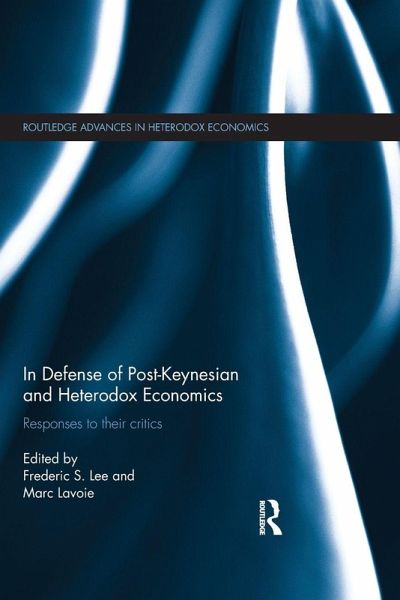
In Defense of Post-Keynesian and Heterodox Economics
Responses to their Critics
Herausgeber: Lee, Frederic S.; Lavoie, Marc
Versandkostenfrei!
Versandfertig in 1-2 Wochen
73,99 €
inkl. MwSt.
Weitere Ausgaben:

PAYBACK Punkte
37 °P sammeln!
Post-Keynesian and heterodox economics challenge the mainstream economics theories that dominate the teaching at universities and government economic policies. And it was these latter theories that helped to cause the great depression the United States and the rest of the world is in. However, most economists and the top 1% do not want mainstream theories challenged-for to do so would mean questioning why and how the 1% got where they are. Therefore, numerous efforts have been and are being made to discredit if not suppress Post-Keynesian and heterodox economics. These efforts have had some su...
Post-Keynesian and heterodox economics challenge the mainstream economics theories that dominate the teaching at universities and government economic policies. And it was these latter theories that helped to cause the great depression the United States and the rest of the world is in. However, most economists and the top 1% do not want mainstream theories challenged-for to do so would mean questioning why and how the 1% got where they are. Therefore, numerous efforts have been and are being made to discredit if not suppress Post-Keynesian and heterodox economics. These efforts have had some success; this book is a response to them.




